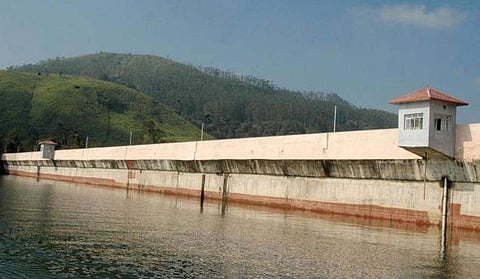

A few days of untimely rains last week had its toll on human lives. In landslides and other accidents, nearly 100 people have died and several families have been rendered homeless. States as distant as Kerala and Uttarakhand have borne the brunt of the fury of the rain. Though separated by a few thousand kilometres, these two states have certain commonalities, particularly in the context of natural calamity. Kerala slopes westward from the Western Ghats, while Uttarakhand nestles in the folds of the mighty Himalayan landscape. Heavy rains with cloudbursts followed by landslides and flooding of the rivers have been the general pattern. With its recent memory of massive floods of 2018, Kerala was far more careful this time in dealing with the floods and the opening of dam shutters. Yet, nearly 40 people lost their lives in Kerala alone. Though natural calamities are not new, their frequency and intensity are growing alarmingly, though not unexpectedly. Environmentalists and climate scientists have been consistently warning about this phenomenon with certainty. The Intergovernmental Panel on Climate Change (IPCC) in their latest report had predicted, among other things, the recurrence of intense rains.
Indisputably, the climate of the planet is undergoing changes. The tragedy is that while the vulnerable sections experience the tragic consequences of climate change, the politically and economically powerful ostriches still pretend that everything is fine. There is reportedly funded research to try and disprove climate change. They are all the make-believe ploys of the rich to celebrate today at the expense of tomorrow. As they wield power, governments generally indulge in the hypocrisy of bemoaning environmental degradation while facilitating further damage by their promiscuous policies and projects, all suitably clothed in welfare and development rhetoric. This holds good for the US, India, Russia as well as China. All the environmental concerns that the state parties show at international forums and while negotiating the Paris Agreement sound hollow by their reluctance to change the accepted lifestyle in developed countries. On the same scale, developing countries reaffirm their right to catch up with the first world. This (unenlightened) self-interest retards the policies meant to reduce emissions. No accord can be effective or meaningful without the willingness to redefine development and renounce all that make heavy demand on the environment. But political establishments, driven by the development lobby, will find excuses to dodge such difficult decisions till such time when they cease to have any relevance or utility. By then irredeemable damage would have been done.
In the aftermath of the economic contraction exacerbated by the pandemic, all governments are in a dreadful hurry to kick-start the economy. Revival packages have been announced, banks have been urged to lend more, ease of doing business has become the much-chanted mantra, investors—both desi and videsi—are being lured and public spending is presumably enhanced. The downside of this hype should not be lost. In a society beleaguered by record unemployment and growing hunger and malnutrition (vehemently repudiated by the Centre), the government is abundantly justified in encouraging investment in productive enterprises. However, the fault line lies elsewhere. In the enthusiasm to encourage investment and score high on the (now discredited) ease of doing business index, environmental considerations are callously thrown to the winds. Development projects that normally would have met with stiff resistance are quietly green-signaled in this context of urgency. The dilution of the rules governing environment impact analysis is a glaring instance. Several state governments have revised the norms for prior environment clearance, making it easier to invest rather than bother about environmental propriety. Even while the perils of coal-based power generation are globally acknowledged, we do not seem to have a strategy to reduce the dependency on the fossil fuel. The alternative is not hydroelectric dams. In fact, in the eagerness to generate more power, more dams are being planned in the Himalayan rivers that have already made Uttarakhand vulnerable with recurring landslides and floods. Sadly enough, no leader (nor the all-knowing NITI Aayog) has convincingly pleaded not to have any more dams in the Himalayan rivers or their tributaries. In fact, the project to widen the roads connecting the Char Dham at a phenomenal financial and immeasurable environmental cost has been fast-tracked, completely stymying the few voices of concern and dissent.
The Madhav Gadgil report had rightly and earnestly warned a few years ago that Kerala's ecological destiny is dependent on what is being done to the Western Ghats. That report wanted to prevent, reduce and regulate human activity in several locations, designated as sensitive and fragile. The consequences of quarrying in the mountains are there for us to see and the land use plans of the settlements in the Western Ghats were sought to be revised and regulated. A further report was prepared by Kasturirangan at the behest of the state government. Though milder in tone and tenor, the Kasturirangan report too highlighted the impending dangers. Naturally, people who had settled there for generations find it unpalatable to be told to move out from their habitats (though it will have to be eventually done).
Political parties and popular governments find it difficult to tell unpopular truths. But the time has come to share the unpleasant and dangerous fate awaiting us. Our citizens should be sensitised to judge their governments for their environmental integrity rather than the investment-at-any-rate policy that twins short-term gain and long-term pain. A democracy truly matures when superficial posturing that conceals the real issues and self-styled celebrations of hypnotising myths fail to impress. It is time that 'We the people' demand from our rulers sustainability over spectacle and survival over celebration. Climate change is too vital to be left to the whims of greedy investors and the myopia of crony governments.
(The writer is former Kerala chief secretary and ex-Vice-Chancellor of Thunchath Ezhuthachan Malayalam Varsity. He can be reached at k.jayakumar123@gmail.com)